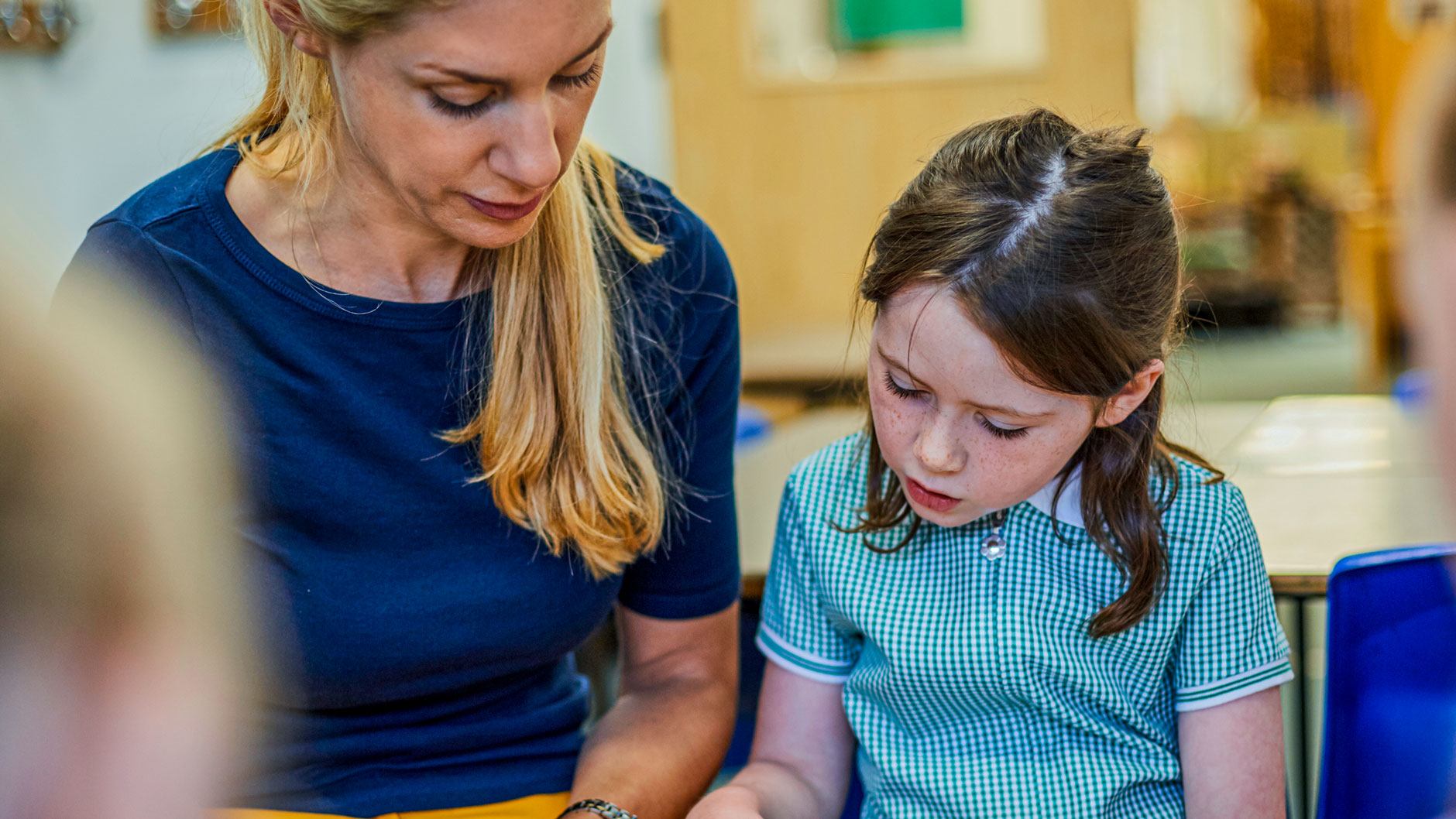As parents, we don’t always know how best to support our child’s learning. Here are five ways teachers can help your child catch up at school.
Schools are such busy places, and teachers may not always have time to focus on your child’s individual challenges in a whole-class setting. Children all learn and discover the world differently and at different paces. They don’t always grasp concepts straight off the bat, which can lead to missing key concepts and falling behind.
But there are tried and tested tactics teachers can use to help students catch up and become more confident learners. As a parent, you’re in a great position to help your child and their teacher put a practical plan in place.
When should you seek help?
Short answer – the earlier the better. In my experience, once a child loses confidence in a particular subject, it can be a bit of a slippery slope. Confidence in learning is a driver for success. At home, look out for a lack of interest in a particular subject, or a sudden change in attitude towards a teacher or class. This behaviour can indicate your child is lacking confidence, perhaps because they don’t understand certain concepts, are getting poor results or feeling overwhelmed by the workload. Communicate with your child’s teacher early, rather than waiting until parent-teacher night. That way, you can put solutions in place right away.
The good news?
Positive teaching techniques can restore confidence in a fairly short time. Once confidence is back on track, the learning can follow. So, getting your child the help they need early will limit the impact on their future learning.
5 ways teachers can help
- Encouragement and positive reinforcement
A positive attitude and a dose of confidence can help anyone with long-term success. By being supportive and non-judgemental, I know I helped many students turn a corner in their learning. Teachers can help by encouraging a child to try again, smiling, listening and waiting patiently for the answer.
I do it now with my pre-schooler, who’s just learned his alphabet. My smiles and positive words helped him stick with it when some letters were tricky or he felt discouraged. Think about how kind or supportive words from a colleague or friend can help you feel about something difficult.
- Break it down
Anything broken down into chunks feels more manageable. Your child’s teacher can help to break in-class tasks and homework or assignments down into smaller, more achievable steps. One strategy I used with students was to offer them a choice. Instead of completing English homework questions from 1 to 10, I’d ask them to choose the 5 they felt most confident with. By empowering them to select, the outcome was almost always more successful.
- Think broadly in the classroom
So many factors affect the way students take in information. When a teacher varies their methods or strategies, they’re providing students with a greater opportunity to learn. Making connections between concepts can help children latch on to ideas, as can peer-to-peer teaching. By explaining an idea to a classmate, it further reinforces it for both students.
- Establish routines
Routine and predictability in the classroom allow children to focus their energy on classwork. This works especially well in a primary school classroom. Your child’s teacher can work to put in place predictable routines for a range of day-to-day procedures. If they already exist, gentle reminders or signs in the classroom may help.
- Spend extra time
Many teachers are happy to spend extra time with your child to help them reach their full potential. This help may take place during break time, or before or after school. A teacher may also guide your child towards existing options at school that may be helpful. All the schools I taught at had a Homework Club that ran several afternoons a week. These programs can help struggling learners to grasp classroom concepts and build confidence. They can also be useful if you’re unable to support your child to complete their homework and assignments.
There are always ways teachers can help your child and strategies that can be put in place to help them catch up and achieve success. It all starts with a conversation.
